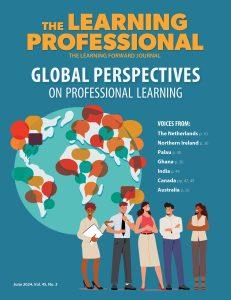DALLAS—March 7, 2012—New data indicate that teacher satisfaction is at its lowest point in more than 20 years, signifying a greater need for professional learning that strengthens leadership and acknowledges educator expertise while building teacher capacity and improving student achievement.
In the new MetLife Survey of the American Teacher: Teachers, Parents, and the Economy, released today, 44% of teachers surveyed report they are very satisfied in their professions; in 2009, 59% indicated they were very satisfied. Those teachers who report lower job satisfaction are more likely to report a decrease in the number of professional development opportunities they have and their opportunities to collaborate with other teachers. “We know from the 2009 MetLife survey how highly teachers value collaboration with their peers and the role peer learning plays in strengthening educator practice and ability to effectively teach all students,” said Stephanie Hirsh, executive director of Learning Forward.
The drop in job satisfaction corresponds with teachers responding that they are likely to leave the profession. At the same time, those who report lower job satisfaction are also less likely to report that their job is secure or that they are treated as professionals by their communities.
Learning Forward’s Standards for Professional Learning, which describe the conditions, processes, and content necessary for professional learning that positively impacts leadership, educator practice, and student learning, underline the importance of collaborative learning, collective responsibility, and a cycle of continuous improvement. “In schools where educators share leadership and responsibility for all students, not only do students benefit, but teachers know that they are respected professionals whose voices are critical to creating successful schools,” said Hirsh.
Many teachers and parents reported cuts in services and positions as a result of ongoing economic conditions. “We know that the economy has in many locations resulted in fewer professional development opportunities for educators,” noted Hirsh. A decline in investment in professional development is dangerous, she continued. “De-emphasizing educator growth at the same time that we’re trying to increase the number of students who are college- and career-ready makes no sense,” Hirsh said. However, tighter budgets do emphasize the need to carefully examine the impact of the professional learning systems undertake, which should always be a priority, according to Hirsh.
The MetLife survey also examined levels of parent and community engagement with schools. Parents, teachers, and students report high levels of engagement between educators and families, although there are still challenges, particularly in high schools. Teachers who report higher levels of parent engagement also report higher levels of job satisfaction with their jobs. “These findings confirm the importance of professional learning that helps educators engage deeply with families around what their students are learning in school,” said Hirsh.
“The 28 years of MetLife survey data are an incredible source of insights from teachers, principals, parents, and students,” said Hirsh. “Elevating the voices of those working daily with children in schools, systems, and homes is absolutely necessary if we are going to succeed in creating successful learning experiences for all students,” she concluded.






